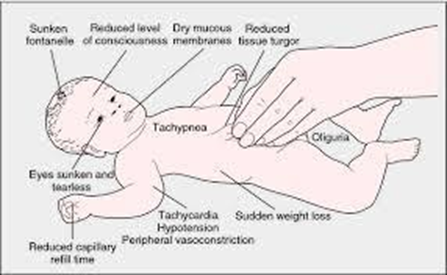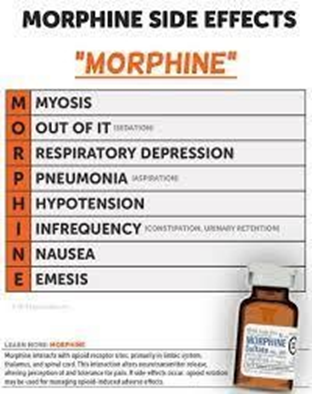A nurse is caring for a 6-month-old infant who has gastroenteritis. Which of the following findings should the nurse identify as a manifestation of severe dehydration?
Capillary refill time 3 seconds
Sunken anterior fontanel
Weight loss of 5%
Produces tears when crying
The Correct Answer is B
Rationale:
A. Capillary refill time of 3 seconds is within the normal range (less than 3 seconds) and does not indicate severe dehydration.
B. A sunken anterior fontanel is a significant sign of dehydration in infants and suggests severe dehydration.

C. While a weight loss of 5% can indicate dehydration, it may not necessarily represent severe dehydration. The extent of dehydration is better assessed by clinical signs such as fontanel status, skin turgor, and mucous membrane moisture.
D. Producing tears when crying is a reassuring sign and suggests adequate hydration, so it does not indicate severe dehydration.
Nursing Test Bank
Naxlex Comprehensive Predictor Exams
Related Questions
Correct Answer is B
Explanation
Rationale:
A. This is not a common adverse effect associated with morphine.
B. Nausea is a common adverse effect of morphine and should be monitored for, particularly in pediatric patients.

C. Stevens-Johnson syndrome is a severe allergic reaction and is not typically associated with morphine.
D. While morphine can cause urinary retention, it is not typically associated with renal failure.
Correct Answer is A
Explanation
Rationale:
A. A toddler who has a heart rate of 68/min is likely to have bradycardia, a slow heart rate that can affect oxygen delivery. Bradycardia could be caused by hypoxia, hypothermia, or cardiac problems. The nurse should report this finding to the provider immediately.
B. This temperature is within the normal range, so it does not require reporting.
C. This blood pressure is within the normal range for an adolescent, so it does not require reporting.
D. The normal respiratory rate for a 3-month-old infant is 25 to 40/min.
Whether you are a student looking to ace your exams or a practicing nurse seeking to enhance your expertise , our nursing education contents will empower you with the confidence and competence to make a difference in the lives of patients and become a respected leader in the healthcare field.
Visit Naxlex, invest in your future and unlock endless possibilities with our unparalleled nursing education contents today
Report Wrong Answer on the Current Question
Do you disagree with the answer? If yes, what is your expected answer? Explain.
Kindly be descriptive with the issue you are facing.
